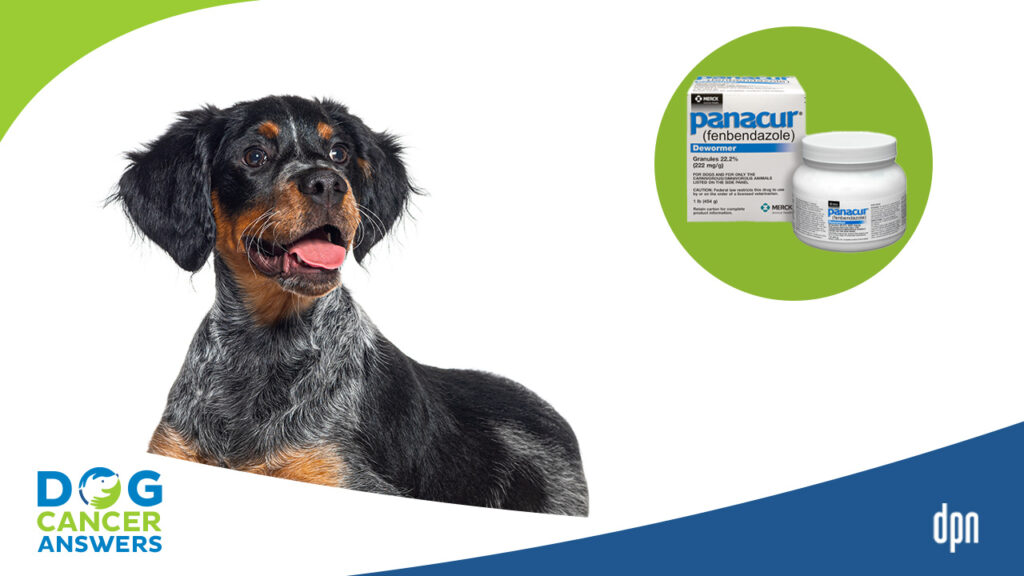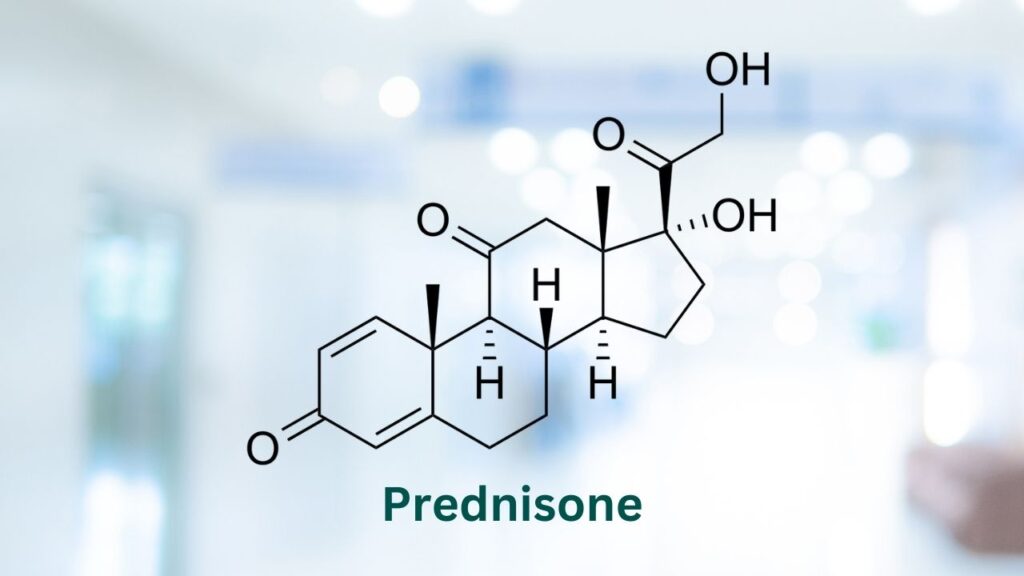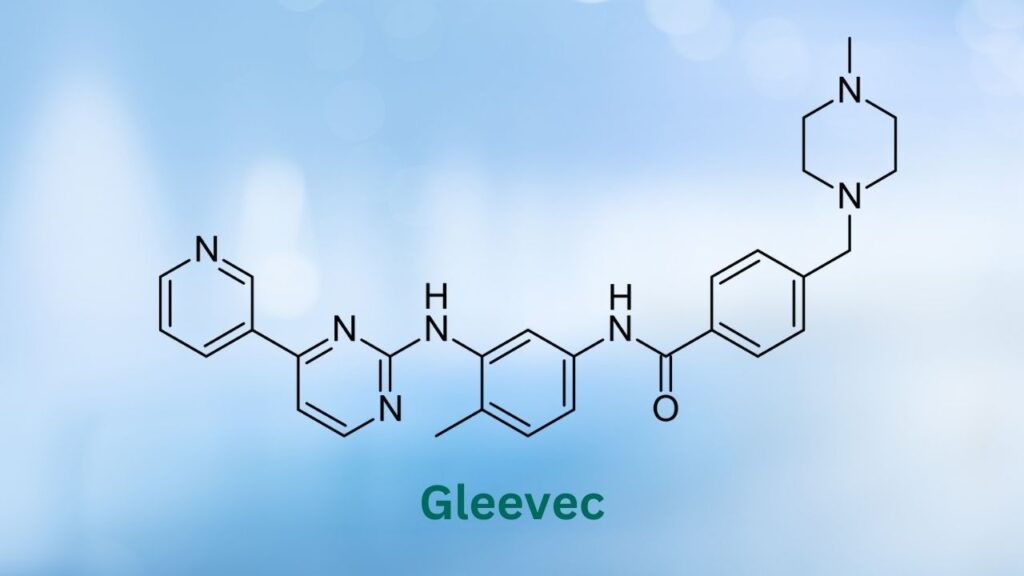Fenbendazole (FenBen) for Dogs: What We Know So Far
Fenbendazole is a deworming drug used in many animals that is now under investigation as an anti-cancer drug.
Key Takeaways
- Fenbendazole treats parasitic worms in dogs. It may have potential as a cancer treatment as well.
- Side effects of fenbendazole are vomiting and diarrhea, which are quite rare when given short-term to treat parasitic infections.
- You do not need a prescription for fenbendazole for dogs but should always discuss starting any new medication with your veterinarian.
- Fenbendazole may cause liver damage in dogs when given long-term, as this has happened in a human.
- Ivermectin and fenbendazole are not the same medication and work differently.
- Long-term or high-dose fenbendazole use (like some online “cancer protocols”) is experimental and has been linked to serious side effects, including bone marrow suppression and liver injury, so it should only be considered under veterinary supervision.11-14
What’s New Since 2023?
Since this article was last updated in 2023, researchers have continued to study fenbendazole as a possible cancer drug and have also reported more safety information.
On the research side, several newer laboratory and animal studies confirm that fenbendazole can slow the growth of canine melanoma and colorectal cancer cell lines, and one study found it inhibited growth of a mouse xenograft model of human ovarian cancer.8-10
However, these are all preclinical studies. They tell us that fenbendazole can affect cancer cells in dishes and in carefully controlled mouse experiments, but they still do not tell us whether it helps dogs with naturally occurring cancers live longer or feel better.
A 2024 review pulled together much of this preclinical work and emphasized that well-designed clinical trials in people and animals are still missing, even as interest in the drug has grown online.11
On the safety side, additional human case reports have described serious drug-induced liver injury in people who self-administered fenbendazole for cancer after reading about it on social media.12,13 Veterinary safety summaries have also highlighted bone marrow suppression in dogs who received fenbendazole daily for longer than the labeled 3-day deworming protocols.14
Taken together, the newer data strengthen two key messages of this article: fenbendazole remains an interesting, early-stage candidate for cancer research, and long-term, extra-label use carries real risks that should be weighed carefully with a veterinarian.
What Is Fenbendazole for Dogs?
Fenbendazole is a deworming/antiparasitic drug commonly given to dogs and other animals. It is part of a class of drugs called benzimidazoles.
It can be given as a pill, liquid, paste, or powder. The treatment duration can vary depending on what type of parasite is being treated.
Fenbendazole is not well absorbed in the intestine, with reports ranging from 10-50% absorption. This may be because it is not very soluble (easily dissolved) in water.
Brand Names
Panacur®
Safe-Guard®
How Fenbendazole for Dogs Works
Fenbendazole acts by disrupting tubulin. Tubulin is a protein essential to produce cellular structures called microtubules.
This is relevant to cancer therapy because microtubules are required for cell division and replication. The microtubules must assemble and disassemble into flexible lines for a cell to make a copy of itself – which cancer cells do a lot of!
In fact, many of our anti-cancer drugs, like vinculin, vincristine, Taxol, and paclitaxel, all work by disrupting the process of breaking down and rebuilding microtubules.1,2
This tubulin disruption is why fenbendazole has caught some researchers’ interest as a possible repurposed drug for cancer treatment.
Could it be an over-the-counter chemotherapy drug if used over the long term?
How researchers came to this question is an interesting story, and helps explain some of the online fuss around fenbendazole, so let’s talk about the fenbendazole’s origin story.
Dr. Nancy Reese answer's Sandy's questions about whether using fenbendazole is a good idea.
The Story of How a Dewormer Seemed to Stop Lymphoma
Remember that fenbendazole was initially developed to kill parasites, not treat cancer. The microtubules of parasitic worms are very different from higher mammals like dogs, so it was not previously expected that fenbendazole would affect mammalian microtubules similarly.
However, one lab stumbled on the possibility that fenbendazole might have anti-tumor effects in mice. This lab was studying lymphoma by injecting human lymphoma cells into mice.2
Why Didn’t the Mice Get Lymphoma?
This is a well-established way to create cancer in lab mice, so the researchers were surprised when their injections failed to produce tumors. Why weren’t these lab mice getting lymphoma, as they normally would?
The only difference the researchers could identify was that the mice were fed a diet with fenbendazole added due to an outbreak of pinworm (an intestinal parasite) in the facility.
Was It the Fenbendazole?
The fenbendazole-laden diet was originally designed to be autoclaved, or sterilized with high heat. Because high heat processing is known to degrade the nutritional value of food, extra vitamins were supposed to be added to the food to compensate.
But this facility did not have the equipment to autoclave the food, so that step was skipped. They didn’t skip the extra vitamins, however. So the diet fed to the mice in this trial was filled with fenbendazole and a high dose of vitamins.
Perhaps that was the reason lymphoma wasn’t taking hold of these mice?
Feeding Trials Repeated
The lab decided to determine if the vitamins, the fenbendazole, or both together caused their tumor model to fail.
They repeated the experiment and fed four groups of mice four different ways:
- one fed standard feed (no fenbendazole or vitamins added) was the control group
- one fed standard feed plus vitamin supplements
- one fed standard feed plus fenbendazole
- one fed standard feed plus both vitamins and fenbendazole
Fenbendazole Plus Vitamins
This time, the tumor cell injections worked in all the treatment groups, and the mice got lymphoma, so their experiment was not duplicated. However, the researchers still made some interesting observations.
Tumor growth in the control group, the vitamins alone group, and the fenbendazole alone groups was similar. (Fenbendazole tended to increase tumor growth but not statistically significantly.)
Tumor growth also occurred in the group of mice fed both fenbendazole and extra vitamins. However, there was a long delay before tumor growth began.
These mice also had a higher level of neutrophils (a type of immune cell). The researchers concluded that fenbendazole with high-dose vitamins may have inhibited tumor growth and proposed that other researchers consider this in their future tumor studies.
Dr. Lauren Barrow explains why fenbendazole isnʻt being used right now by most veterinarians -- and why your oncologist will know the most about repurposed drugs!
Research Is Ongoing
Since that study was completed in 2008, interest has arisen in fenbendazole’s effects on cancer because researchers want to avoid complications in future mouse studies and as a potential therapeutic in humans and other animals.
In Vitro Studies
Remember that oral fenbendazole only has a 10-50% absorption rate, so it is important for researchers to learn how to make it more bioavailable.
A few studies in cells grown in culture dishes have yielded some interesting findings and have begun to address how to deliver the poorly absorbed drug to cancer cells. Some of these studies have included cell lines with leukemia, prostate cancer, and canine melanoma.3-5
In Vivo Studies
There was also a study in mice using a breast cancer model (not in combination with vitamins), which found no effect on tumors in the mice alone or when combined with radiation. However, the study did see an effect on cells cultured in dishes.1
This is a good example of why scientific research can feel frustrating. Many therapies that show promise in petri dishes fail to perform in living bodies. And sometimes what performs in petri dishes and mice doesn’t perform in dogs or humans.
The long and slow process can reveal really promising therapies over time, however.
Since that first mouse study, newer work has shown that fenbendazole can disrupt microtubules and energy metabolism in several additional cancer cell types and in some mouse tumor models.8-10,11 These findings keep fenbendazole on the radar for researchers, but they are still not a substitute for controlled clinical trials in dogs.
What We Are Still Learning About Fenbendazole and Cancer
Overall, the study of fenbendazole as an anti-cancer agent is in its very early stages, and several aspects must be addressed, including:
- Dosing
- Safety
- Improving delivery to cancer cells
- What cancers it might be effective in
- What therapies might it best be paired with
Be Skeptical of Incredible Claims
Internet claims suggest this drug can and should be used to treat every cancer, which is usually a good cause for alarm. Fenbendazole has certainly been a victim of this sort of unearned hype.
After a human lung cancer patient claimed to be cured by fenbendazole and a bit of social media fervor in South Korea, the belief that this drug could cure non-small cell lung cancer took off (and led to at least one case of liver toxicity).6,7
A high-profile singer and comedian in South Korea amplified the fenbendazole message when he was diagnosed with lung cancer and started taking the drug. Eight months later, he denounced his earlier message, said he had seen no benefit and suffered from severe side effects. He later died of his disease.6
These dramatic stories are powerful, but they are not the same as controlled clinical trials. At the same time, the serious liver injuries reported in people taking fenbendazole off-label remind us that the risks are very real, even though the benefits for cancer treatment remain unproven.11-13
Fenbendazole Shows Promise, But Has Not Been Thoroughly Tested In Any Cancer
Researchers are still in the early stages of testing fenbendazole as a cancer treatment. It has not been tested for efficacy in any cancer yet. The original tumor model that it affected was lymphoma, and hopefully, research in that direction will be productive.
But today, this should be considered a promising potential therapy awaiting more testing. Using fenbendazole to treat cancer in dogs or humans is based more on theory and hope than research.
Common Uses of Fenbendazole for Dogs
Fenbendazole is used routinely for short time periods (a few days only) to treat parasitic worms in dogs and other animals.
It is not routinely used for longer than a few days, and the risk of liver and other organ toxicity is a concern.
When to Not Use Fenbendazole
There are no known drug interactions with fenbendazole. However, it is mostly used in short courses of therapy, so we don’t yet know if there may be drug interactions that develop when it is used long-term (such as it certainly would be for cancer treatment).
There was one known case of liver damage caused to a human patient taking fenbendazole in combination with her chemotherapeutic drugs without consulting her physician.
As the drug is processed in the liver, it is possible that long-term use with other drugs that stress the liver could be harmful.
Long-Term, Extra-Label Use and Bone Marrow Risk
Typical deworming courses for fenbendazole last only a few days and have a wide margin of safety for most dogs. In contrast, the long-term daily dosing schedules that circulate online as cancer protocols are experimental and much riskier.
In a summary of reported cases, dogs that received fenbendazole at higher or extra-label doses for longer than the labeled 3-day course developed bone marrow suppression: their bone marrow stopped making enough red blood cells, white blood cells, and platelets.14 Affected dogs became anemic and more vulnerable to infections and bleeding problems, and their blood counts improved only after fenbendazole was stopped.
These veterinary reports echo what has been seen in human case reports, where people self-medicating with fenbendazole for cancer developed serious liver injury.11-13 For both dogs and people, stretching this drug far beyond its approved short-term use appears to increase the risk of serious harm.
Fenbendazole Dosage for Dogs
This drug is usually given based on body weight when used as a dewormer. For example, Panacur recommends 50 mg/kg (22.7 mg/lb) daily.
Fenbendazole may come as a liquid, powder, or paste and is typically mixed with food. Treatment duration is based on what type of parasite is being treated.
Always follow your veterinarian’s specific doses and schedule for your dog’s case.
What If I Miss a Dose?
This is a once-daily medication, so if you miss a dose and it is the same day, give the dosage when you remember. Then alter the dosage timing of the following doses to 24 hours from when you gave the last dosage.
If it has been more than a day without fenbendazole, skip the missed dose and call your veterinarian to find out if you need to extend the course of treatment. Do not give a double dose of fenbendazole to “make up” for a missed dose, as this might harm your dog.
Storage and Handling
Fenbendazole can be stored at room temperature (68-77 °F).
Safety and Side Effects
This is a well-tolerated drug when given over the typical time course, with the most common side effects being vomiting or diarrhea. These side effects are still rare, usually affecting about 1% of dogs.
Some animals may hypersalivate after an oral dose. This resolves on its own without any medication or treatment.
We don’t yet know what side effects may occur when fenbendazole is given long-term, so more interactions may show up as cancer studies continue.
Since the first version of this article, additional reports have described both bone marrow suppression in dogs receiving unusually long courses of fenbendazole and serious liver injury in people who self-administered veterinary fenbendazole for cancer.11-14 These events appear to be uncommon, but they confirm that long-term, high-dose use is not benign and should only be considered under close veterinary (and, for people, medical) supervision.
Our Take on Fenbendazole for Dog Cancer
Although there is some promising research, there is not enough evidence to recommend fenbendazole for cancer treatment.
We do not know enough about the long-term effects in dogs or interactions with chemotherapies. This is important to consider because, remember, fenbendazole’s mechanism of action is similar to many chemotherapeutic drugs already in use as first-line treatments in cancer.
Fenbendazole may offer another line of treatment in the future. Still, if you want to consider using this drug to treat your dog’s cancer, it is essential to discuss it with your veterinarian first.
At this point we don’t understand how effective or safe it is as a chemotherapeutic.
Dr. Kim Agnew talks about his research into re-purposing the sheep dewormer monepantel as a lymphoma treatment. (Note: monepantel is not the same as fenbendazole.)
Questions to Ask Your Veterinarian About Fenbendazole
- Do you think fenbendazole is appropriate for my dog’s specific cancer, and if so, why?
- How would fenbendazole fit with the rest of my dog’s treatment plan (surgery, radiation, chemotherapy, palliative care)?
- What dose, schedule, and treatment duration would you recommend if we decided to try it?
- What bloodwork or other monitoring would you want to do before and during treatment?
- What specific warning signs should make me stop the drug and call you right away?
- Are there clinical trials or other treatment options that you feel have stronger evidence for my dog’s cancer type?
When to Call Your Veterinarian Immediately
- Your dog seems very weak, unusually tired, or collapses.
- You notice pale gums, bruising, nosebleeds, or bleeding that is hard to stop.
- Your dog develops a poor appetite, repeated vomiting, or persistent diarrhea.
- You see signs of jaundice (yellowing of the gums, eyes, or skin) or a swollen belly.
- Your dog has a fever, shivering, or seems painful and you are worried.
- You accidentally give more fenbendazole than prescribed or miss several doses.
Topics
Did You Find This Helpful? Share It with Your Pack!
Use the buttons to share what you learned on social media, download a PDF, print this out, or email it to your veterinarian.






